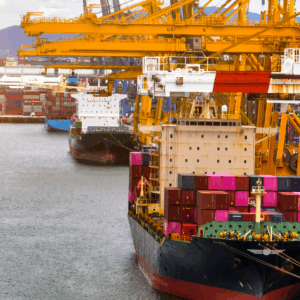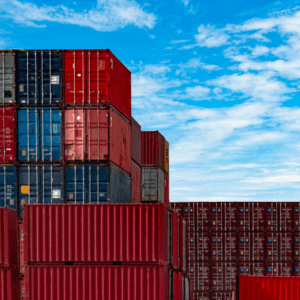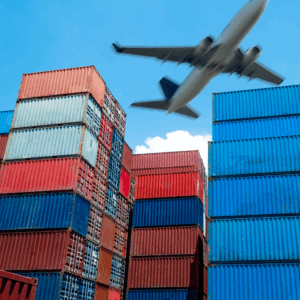 Navigating the complexities of international air freight cost calculation is a critical challenge that freight forwarders, shippers, and logistics professionals face daily. The transportation of goods by air across international borders involves a multifaceted cost structure influenced by factors such as weight, volume, route, service level, regulatory requirements, and additional handling fees. The freight forwarding sector, with its layered charges, surcharges, and accessorial fees, demands a nuanced understanding to manage budgets effectively and avoid unexpected expenses. Coupled with this, the rise of digital logistics solutions has revolutionized how freight services quote, book, and track shipments, offering unprecedented transparency and efficiency.
Navigating the complexities of international air freight cost calculation is a critical challenge that freight forwarders, shippers, and logistics professionals face daily. The transportation of goods by air across international borders involves a multifaceted cost structure influenced by factors such as weight, volume, route, service level, regulatory requirements, and additional handling fees. The freight forwarding sector, with its layered charges, surcharges, and accessorial fees, demands a nuanced understanding to manage budgets effectively and avoid unexpected expenses. Coupled with this, the rise of digital logistics solutions has revolutionized how freight services quote, book, and track shipments, offering unprecedented transparency and efficiency.
This comprehensive guide synthesizes key insights from industry research and operational data to provide an authoritative exploration of freight forwarder charges, the mechanics behind international air freight cost calculators, and the transformational impact of digital freight platforms. Drawing from foundational studies, including World Bank research on freight forwarders, the analytic methodology from academic theses on cost estimation, and practical information on accessorial fees and common carriage law, this article is crafted to equip logistics decision-makers with the knowledge and tools required for cost-effective international air cargo shipping.
- The Fundamentals of International Air Freight Cost Calculation
Calculating air freight costs for international shipments is a multi-dimensional process that transcends simplistic weight-to-price equations. It requires an integrated assessment of physical shipment parameters, network configurations, carrier pricing policies, and regulatory environments. Central to pricing is the concept of dimensional weight, where carriers charge based on whichever is higher: the actual gross weight or the volumetric weight derived from shipment dimensions. This system ensures carriers price cargo equitably according to the space consumed in aircraft holds, preventing undercharging for bulky but lightweight freight.
The cost structure also incorporates variable route factors. Distances between origin and destination airports, along with intermediate transshipment points, influence fuel consumption, handling times, and customs clearance complexities. Consequently, carriers may apply route-specific surcharges that reflect operational intricacies, such as security protocols, congestion at hubs, or geopolitical constraints. Additionally, fluctuating fuel costs and peak-season demand cycles contribute to dynamic pricing that changes frequently, underscoring the value of real-time, algorithm-driven international air freight cost calculators that integrate current market data to provide shippers with accurate instant rates.
The detailed calculation of air freight cost further includes mandatory fees such as airport terminal handling charges, security-related expenses, and customs brokerage fees, all of which are pivotal components within a freight forwarder’s quotation. These charges reflect the comprehensive service provided, encompassing coordination, documentation, cargo inspection, and risk mitigation throughout the shipment lifecycle. As such, international air freight cost calculators must incorporate these multifaceted cost elements, ensuring that users receive a complete understanding of the total landed cost rather than just the headline freight rate.
- Deconstructing Freight Forwarder Charges: A Layered Approach
Freight forwarders are the linchpin in the complex logistics ecosystem, responsible for orchestrating multi-modal transport, customs clearance, and cargo handling. Their charges extend beyond simple transportation fees, reflecting the broad range of services they render. At the core lies the base freight forwarding fee, which compensates for booking, coordination, documentation, and management of communication with carriers and customs authorities. However, this foundational fee is frequently supplemented by various accessorial charges for additional services rendered beyond the standard shipping contract.

The regulatory component of freight forwarder charges is equally significant. International shipments necessitate compliance with export-import documentation regulations, security programs such as TSA-approved trucking in the United States, and customs clearance protocols. For example, charges may accrue for the preparation and verification of commercial invoices, packing lists, and export declarations, as well as for handling delays caused by missing or incomplete documentation. Forwarders often bear the cost of ensuring adherence to these requirements and allocate charges accordingly, making transparency essential to maintain trust with shippers.
The intricate fee structure requires shippers to seek freight forwarders who provide detailed, upfront breakdowns of all charges, thereby avoiding unforeseen expenses that can derail budgets and project timelines. Digital quoting systems offered by modern freight forwarders enable such transparency by itemizing base fees, accessorials, regulatory costs, and fuel surcharges in a consolidated online interface, facilitating more informed logistics decisions.
- Digital Logistics Solutions: Transforming Freight Forwarding Operations
The logistics sector is undergoing a profound digital transformation, catalyzed by advances in automation, real-time data integration, and cloud computing. Digital logistics solutions encompass a spectrum of technologies and platforms that automate pricing, booking, tracking, and communication functions traditionally handled manually through emails and phone calls. These solutions empower freight forwarders and shippers with tools to access instant freight quotes, manage shipment documentation electronically, and track cargo status globally in real-time using GPS-based tracking.
One of the transformative impacts of these technologies is the reduction of operational friction and error. By digitizing shipment information entry, system-based validation mitigates the risks of incorrect data leading to misclassifications or customs delays. Automated workflows streamline document generation for export declarations, commercial invoices, and airway bills, decreasing administrative overhead and accelerating transit times. Importantly, digital freight forwarding platforms allow users to view multiple carrier rates and service options simultaneously, promoting competition and price optimization.

Furthermore, digital solutions enhance customer experience through transparent tracking interfaces, alerting shippers proactively to shipment status changes, potential delays, or exceptions. This visibility fosters better coordination with end customers and downstream partners, elevating service reliability and reducing costly last-minute surprises.
- Evaluating Logistics Costs: Analytical Models and Decision Trade-Offs
Accurately evaluating logistics costs requires more than accounting for freight charges alone. Comprehensive cost models consider transport, handling, inventory carrying, warehousing, and administrative expenses throughout the supply chain. Scholarly research and industry analyses indicate that logistics costs constitute a substantial portion of total product costs, profoundly influencing competitiveness.
Methods such as analogy-based cost estimation utilize historical shipment data to predict future freight expenses with considerable accuracy. These methods employ algorithms similar to k-Nearest Neighbors, identifying similar past shipments to infer cost benchmarks, which facilitates budgeting and operational planning without the need for exhaustive manual estimations.
Decision-makers must weigh trade-offs between expedited delivery and cost savings. Empirical evidence suggests that while specific shipments require rapid transit, 
Such integrative cost evaluations underpin strategic logistics planning, guiding route selections, carrier choices, and inventory positioning to minimize total landed costs while meeting service expectations.
- Freight Forwarders in Practice: Operational Realities and Legal Considerations
Freight forwarders operate in a complex environment, coordinating cross-border shipments while managing risks and ensuring compliance with various regulations and laws. Their operational choices—such as selecting routes, carriers, and service modes—reflect a continuous negotiation between cost-efficiency and service reliability. Regulatory changes, geopolitical tensions, infrastructure bottlenecks, and fluctuations in the labor market further complicate the landscape.
From a legal perspective, freight forwarders may function as common carriers or intermediaries under brokerage arrangements, each with distinct liabilities and contractual obligations. Clear, enforceable contracts delineate responsibilities for cargo loss, delay, or damage, mitigating disputes and clarifying recourse pathways.
In practice, forwarders rely heavily on established relationships with carriers, customs brokers, and local agents, leveraging these networks to navigate the logistical and regulatory challenges inherent to international freight. Their expertise in customs documentation, tariff classifications, and security protocols is essential to avoiding costly clearance delays.
Understanding these operational and legal frameworks equips shippers to partner effectively with freight forwarders, ensuring service quality and cost transparency.
- Sea and Air Intermodal Freight Transport: Enhancing Efficiency and Sustainability

Analyses of key trade lanes, such as routes between East Asia and North America via Japan, demonstrate significant advantages in reduced freight costs, improved transit time reliability, and lowered environmental impact. Policies facilitating efficient cargo handling, customs processing, and intermodal infrastructure at hubs are critical to realizing these benefits.
Environmental sustainability is a growing imperative, and sea-air intermodal solutions contribute by minimizing carbon emissions relative to full air shipments. They also provide resilience against volatile fuel price fluctuations and regulatory pressures on emissions.
This strategic freight transport model is poised to gain further traction as global supply chains seek both economic and ecological optimization.
Frequently Asked Questions (FAQs)
What is an accessorial?
Accessorials are additional fees charged for services beyond standard freight operations, such as liftgate delivery, construction site pickups, residential or limited-access deliveries, hazardous materials handling, and appointment scheduling.
What does missing documents mean?
This indicates that essential export or import paperwork, such as commercial invoices or packing lists, has not been provided, which may cause shipment delays.
What is airline delivery/pickup?
A fee is applied when shipments are picked up from or delivered directly to airline cargo facilities due to extra handling and paperwork requirements.
How accurate are digital air freight cost calculators?
They use live carrier data and incorporate multiple variables, providing highly accurate estimates that reflect current market rates and surcharges.
Can digital logistics solutions replace traditional freight forwarding?
They augment traditional services by automating and enhancing accuracy and visibility, but do not replace the expertise and coordination that freight forwarders provide.
International air freight cost calculation is a multifaceted challenge encompassing physical shipment characteristics, regulatory compliance, and freight forwarder service structures. Freight forwarder charges comprise base rates, accessorial fees, and regulatory surcharges, which necessitate careful consideration for effective budget management. Digital logistics solutions, exemplified by ExFreight’s instant freight cost calculators and shipment management platforms, represent a paradigm shift in logistics, delivering transparency, efficiency, and agility to shippers of all sizes.
By embracing digital freight forwarding and innovative intermodal transport strategies, businesses can optimize costs, enhance delivery reliability, and improve sustainability, thereby ensuring competitiveness in an increasingly complex global market. Mastery of these domains is indispensable for logistics professionals seeking to leverage technology and strategic insight to transform supply chain performance.






Leave A Comment
You must be logged in to post a comment.